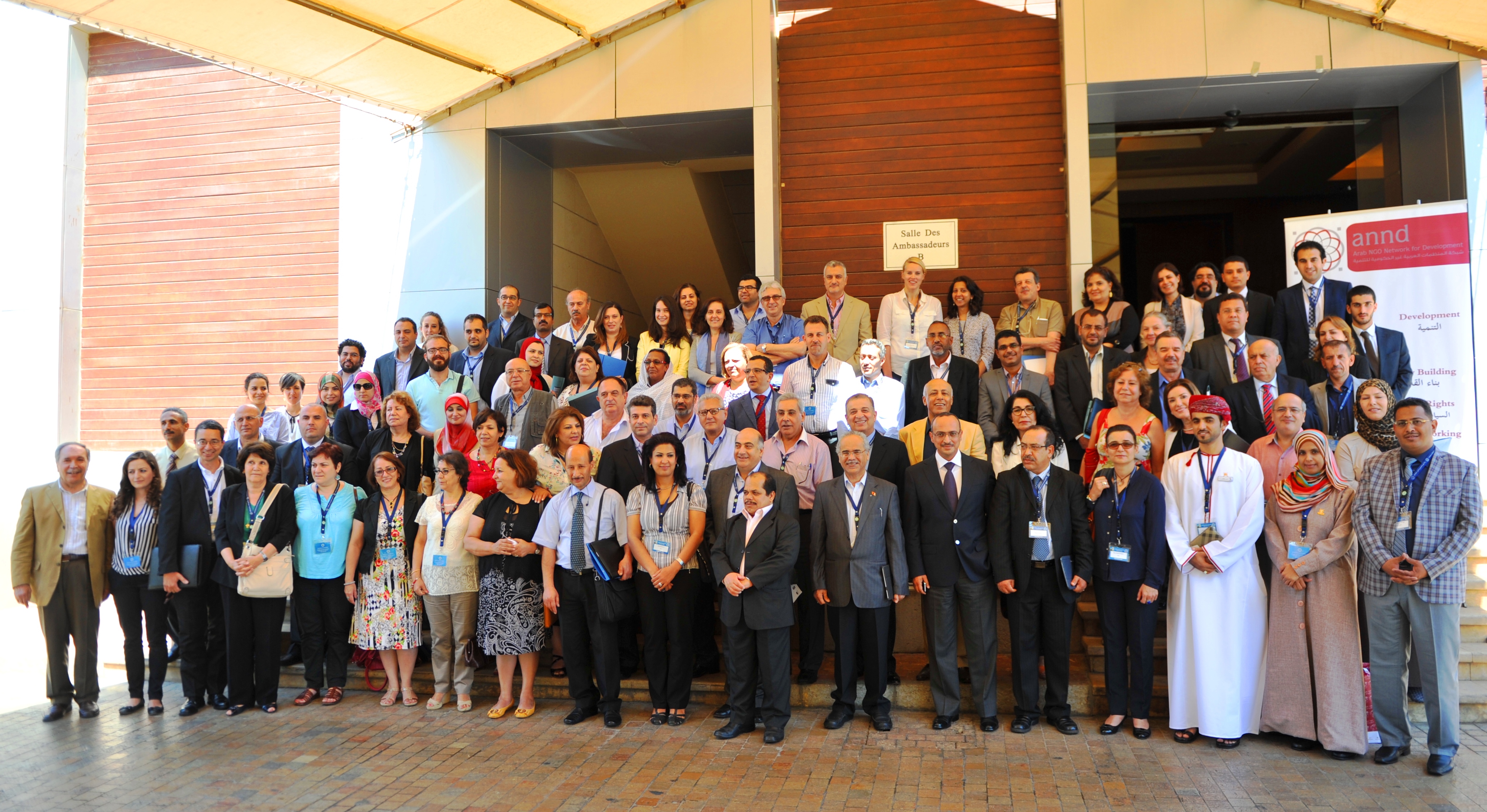In the wake of upheavals in the Arab region since 2011 that have included demands for social and economic justice, workshop participants from across the region observed persistent structural constraints. With the support of the Arab NGO Network for Development (ANND), Arab Administrative Development Organisation (ARADO), United Nations Economic Commission for Western Asia (UN-ESCWA) and Regions Refocus, over 100 participants from civil society, labor unions, international organizations, media, academia, and regional bodies met to discuss social and economic inequality in the region. The convening included strategic debates on investment for development, taxation and redistribution, social protection, and addressing inequalities including related to gender.
Participants agreed that the Sustainable Development Goals (SDGs) are a limited tool to facilitate transformative economic development, which is a precondition to addressing the structural causes of inequality. In a joint civil society-government statement consolidating the outcomes of their debates, participants emphasized the need to move beyond quantitative goals and indicators for the pursuit of redistributive policies, expansive and inclusive social protection as a human right, private sector accountability, and strategic economic integration. They posited that the “social contract between States and their people” is fundamental to development, calling for greater pathways for exchange and dialogue between civil society and policymakers. Joint civil society-government policy proposals focused on the need for a new development paradigm for the Arab region and a strengthened developmental role of the State.


Ut enim ad minim veniam, quis nostrud exercitation ullamco laboris nisi ut aliquip ex ea commodo consequat. Duis aute irure dolor in reprehenderit in voluptate velit esse cillum dolore eu fugiat nulla pariatur.

Imagining Transformative Policies for Addressing Social and Economic Inequalities
15 June - 16 June, 2014
Beirut, Lebanon






